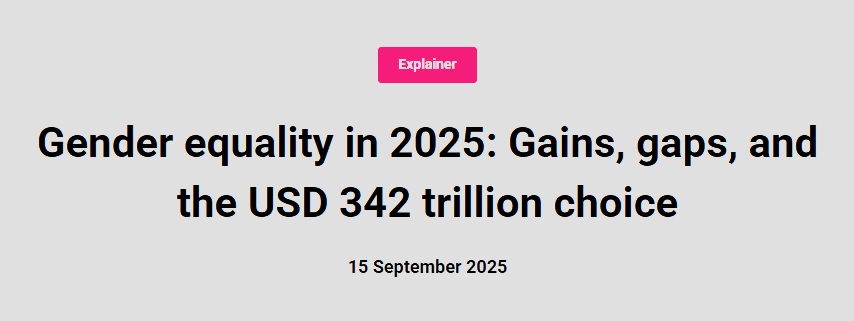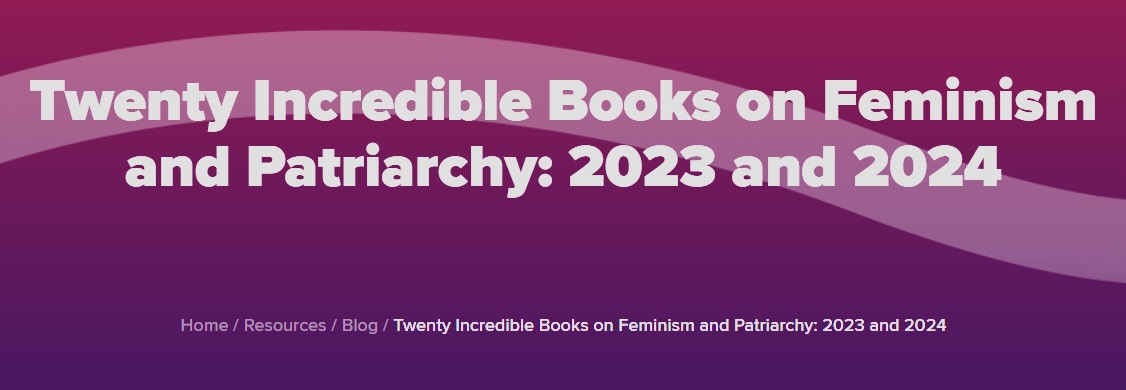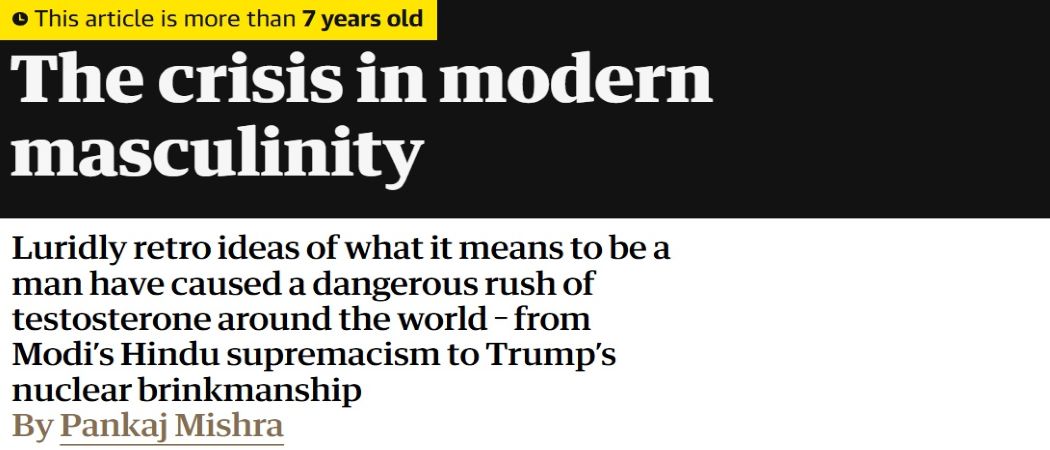Patriarchy Is Regaining Ground: UN Chief Warns of Unprecedented Threats to Women's Rights

UN Secretary-General António Guterres issues stark warning at the 2024 Commission on the Status of Women: 'Patriarchy is far from vanquished; it is regaining ground.' From Afghanistan to America, from digital spaces to political stages, women's rights are under systematic attack and decades of progress are being reversed.
Related Topics
On March 11, 2024, at the 68th Session of the Commission on the Status of Women at UN Headquarters in New York, UN Secretary-General António Guterres delivered a shocking warning: “Patriarchy is far from vanquished; it is regaining ground.” This was not diplomatic rhetoric, but a stark assessment of the global state of women’s rights. From the Taliban’s gender apartheid to America’s abortion bans, from online hate to political exclusion, women are losing hard-won rights.
Evidence of Global Rollback
Alarming Statistics
The data Guterres presented paints a dark picture:
- Every 10 minutes, a woman is killed by an intimate partner or family member
- Global poverty increasingly has a “woman’s face”
- Maternal mortality is rising in some regions
- Child marriage outpaces population growth
- Women parliamentarians comprise only 26.7% of global legislators
At the current pace, achieving gender equality will take 300 years.
Afghanistan: Extreme Case of Gender Apartheid
Since the Taliban’s return to power, over 50 decrees have been issued to suppress women’s and girls’ rights:
- Banning girls from secondary and higher education
- Prohibiting women from working (with minimal exceptions)
- Forbidding women from traveling alone
- Banning women from parks and gyms
- Requiring head-to-toe covering
- Prohibiting women from appearing on television
Guterres called this “systematic gender apartheid,” blatant oppression of half the population.
United States: Democratic Backsliding
Even in the supposed beacon of democracy, women’s rights are in sharp decline:
- 14 states have implemented near-total abortion bans
- 28 states have restricted abortion rights
- The Supreme Court overturned Roe v. Wade, ending 50 years of constitutional protection
- Transgender rights face unprecedented legislative attacks
Global Trends
Patriarchal resurgence is not limited to specific regions:
Europe
- Poland and Hungary restricting abortion rights
- Anti-gender movements rising in multiple countries
- Far-right parties leveraging anti-feminist agendas for support
Latin America
- Nicaragua and El Salvador completely banning abortion
- Women imprisoned for miscarriages
- Femicide rates surging
Asia
- India’s persistent high rates of sexual violence
- Japan and Korea’s severe workplace gender discrimination
- China’s increased “leftover women” discourse pressure
Africa
- Female genital cutting still prevalent
- Child marriage rates remaining high
- Conflict-related sexual violence increasing
Autocrats and Populists’ “Traditional Values” Agenda
Weaponizing “Traditional Values”
Guterres specifically noted that autocrats and populists are promoting so-called “traditional values” to attack women’s rights:
Russia
- Decriminalizing domestic violence
- Banning “LGBTQ+ propaganda”
- Promoting “traditional family values”
Brazil
- Bolsonaro attacking gender education
- Cutting women’s health programs
- Denying gender violence
Turkey
- Withdrawing from the Istanbul Convention (preventing domestic violence)
- Restricting women’s clothing choices
- Encouraging women to bear children rather than work
Rise of Religious Fundamentalism
Fundamentalism across religions is attacking women’s rights:
- Christian fundamentalism driving anti-abortion laws in the US
- Islamic fundamentalism restricting women’s freedom in the Middle East
- Hindu nationalism attacking women’s autonomy in India
- Buddhist extremism marginalizing women in Myanmar and Sri Lanka
Digital Spaces as New Battlegrounds
Proliferation of Online Hate
Digital technology has become patriarchy’s new tool:
- 87% of women experience online harassment
- Deepfake pornography targeting women politicians and activists
- Coordinated harassment campaigns silencing women’s voices
- Algorithms amplifying sexist content
Abuse of Surveillance Technology
- Period tracking app data used for prosecution
- Location tracking monitoring women seeking abortions
- Facial recognition enforcing dress codes
- Social media surveillance of feminist activists
Deepening Economic Inequality
COVID-19’s Disproportionate Impact
The pandemic exacerbated gender inequality:
- Women’s unemployment higher than men’s
- Unpaid care work dramatically increased
- Domestic violence cases surged
- Girl’s school dropout rates rose
Labor Market Discrimination
- Global gender pay gap at 20%
- Women overrepresented in informal economy
- Glass ceilings remain firmly in place
- Motherhood penalty pervasive
Persistent Political Exclusion
Underrepresentation
Despite progress, women remain marginalized in politics:
- Only 13 countries have women heads of state
- 26.7% of parliamentary seats held by women
- Even fewer women leaders in local government
- Women frequently excluded from peace negotiations
Violence Against Women Politicians
- Surging online harassment and threats
- Physical attacks and assassination attempts
- Gendered smear campaigns
- Family members threatened
Weaponization of Sexual Violence in Conflict
Systematic Rape as War Tactic
Guterres emphasized that sexual violence is rising in global conflicts:
- Ukraine reporting Russian forces’ sexual violence
- Mass rape in Ethiopia’s Tigray conflict
- Myanmar military’s sexual violence against Rohingya women
- Ongoing crises in Sudan and Democratic Republic of Congo
Culture of Impunity
- Perpetrators rarely prosecuted
- Victims stigmatized and marginalized
- Justice systems failing to deliver
- International community’s inadequate response
Rise of Resistance Movements
Global Feminist Awakening
Despite setbacks, resistance movements are growing:
Iran’s “Woman, Life, Freedom” Movement
- Challenging mandatory hijab
- Demanding regime change
- Inspiring global solidarity
Latin America’s Green Wave
- Fighting for abortion legalization
- Opposing gender violence
- Building transnational coalitions
#MeToo’s Continuing Impact
- Continuing to expose sexual violence
- Driving legal reforms
- Changing cultural norms
Young Generation’s Leadership
Gen Z and millennial women are leading change:
- Using social media to organize
- Refusing to accept inequality
- Creating new forms of resistance
- Building intersectional movements
UN Response and Recommendations
Guterres’ Call to Action
The Secretary-General outlined specific steps:
Invest in Women and Girls
- Increase education funding
- Support women’s entrepreneurship
- Provide social protection
- Ensure health service access
Reform Discriminatory Laws
- Repeal laws restricting women
- Enact equality legislation
- Enforce existing protections
- Hold violators accountable
Increase Women’s Leadership
- Quotas and affirmative action
- Support women candidates
- Address structural barriers
- Create safe political spaces
End Gender-Based Violence
- Resource survivors
- Prosecute perpetrators
- Change social norms
- Engage men in prevention
2030 Goals
The UN reaffirms commitment to Sustainable Development Goal 5 (Gender Equality):
- End all forms of discrimination
- Eliminate violence against women
- Ensure sexual and reproductive health rights
- Recognize unpaid care work
- Ensure equal participation in leadership
Reasons for Hope
Irreversible Consciousness
Despite setbacks, certain changes are irreversible:
- Women won’t accept returning to the past
- Young generations reject patriarchal norms
- Global solidarity stronger than ever
- Digital tools make organizing easier
Economic Imperative
Gender equality is not just a moral imperative:
- Gender equality could increase global GDP by 26%
- Women’s leadership in companies improves profitability
- Women’s education boosts economic growth
- Gender diversity drives innovation
Arc of History
History shows progress, though not linear, has a clear direction:
- Women’s suffrage now nearly universal
- Education gaps closing
- Legal equality expanding
- Social norms evolving
Urgency for Action
Tipping Point
We are at a critical moment:
- Can consolidate gains or lose them
- Can advance or regress decades
- Can build equality or deepen injustice
- Can choose justice or accept oppression
Everyone’s Responsibility
Achieving gender equality requires everyone:
Governments must:
- Enact and enforce equality laws
- Fund gender equality programs
- Ensure women’s participation
- Hold violators accountable
Businesses should:
- Ensure equal pay
- Promote women’s leadership
- Provide family-friendly policies
- Address harassment
Individuals can:
- Challenge sexism
- Support women leaders
- Educate others
- Vote for equality
Conclusion: Fighting for Our Rights
Guterres’ warning is clear: patriarchy is not dead, it’s adapting, evolving, and fighting back. From the Taliban’s extremism to America’s abortion bans, from online harassment to political violence, the attacks on women’s rights are real, coordinated, and dangerous.
But history tells us that every time patriarchy tries to reassert control, women fight back — and harder. Today’s resistance movements, from Iran’s streets to America’s ballot boxes, from Latin America’s Green Wave to Africa’s #MeToo movements, show the unstoppable force of change.
As Guterres said: “Gender equality is not a favor to women. When women’s rights flourish, the whole world benefits.”
The fight is not over. In fact, it may have just begun. But one thing is certain: patriarchy may be regaining ground, but it faces the strongest, most united, most determined global feminist movement in history.
The future doesn’t belong to those who want to push women back into the past. It belongs to those fighting for equality, justice, and freedom — for everyone.
This article is based on the UN Secretary-General’s speech at the 68th Session of the Commission on the Status of Women
Related Articles

Beijing+30: A Critical Moment for Global Women's Rights
2025 marks the 30th anniversary of the Beijing Declaration and Platform for Action. Despite progress, 24% of countries report backlash on gender equality, and 10% of women still live in extreme poverty. This is a critical moment to renew commitments.

Breaking Free: Why 'Equality' Is a Patriarchal Lie
New book 'Breaking Free' reveals how 'equality' is a racist, patriarchal ideal that keeps women and marginalized communities chasing an unattainable goal. True liberation requires not equality, but freedom.

The Crisis in Modern Masculinity
This article traces the historical evolution of modern masculinity, revealing the politicization and pathologization of the 'strong man' fantasy on a global scale, and critiques how patriarchy shapes oppressive roles for both men and women.
Support Our Work
If this content has been helpful to you, please consider supporting us to continue curating quality feminist resources
☕ Buy me a coffeeComments & Discussion
Share your views and feelings about this article
Join the Discussion
Share your views and feelings about this article
Loading comments...